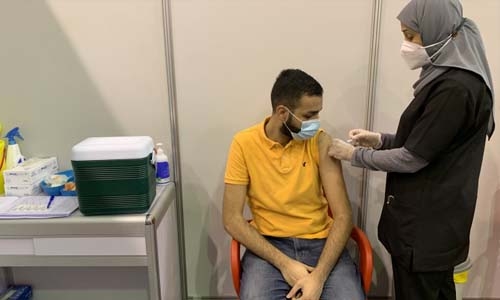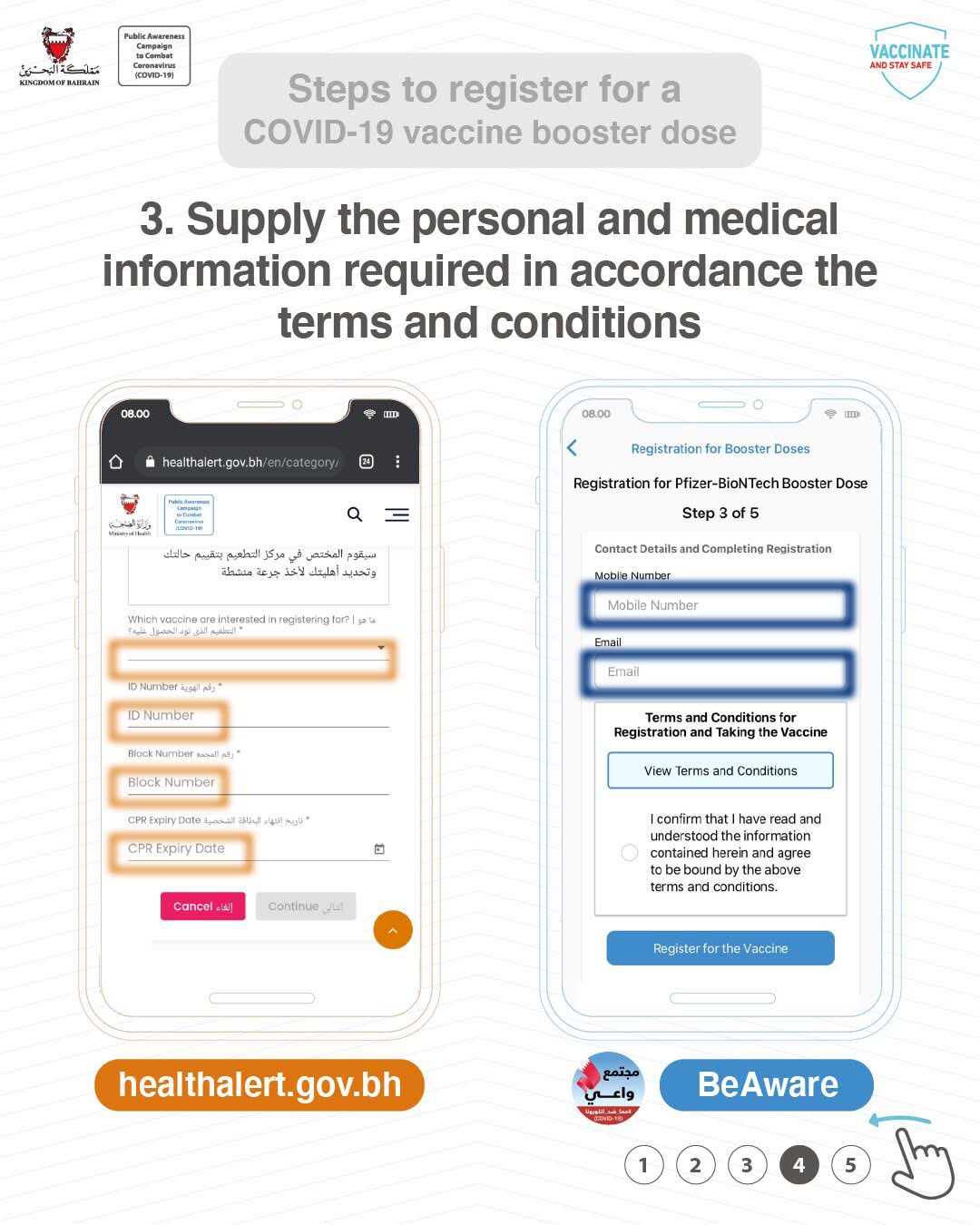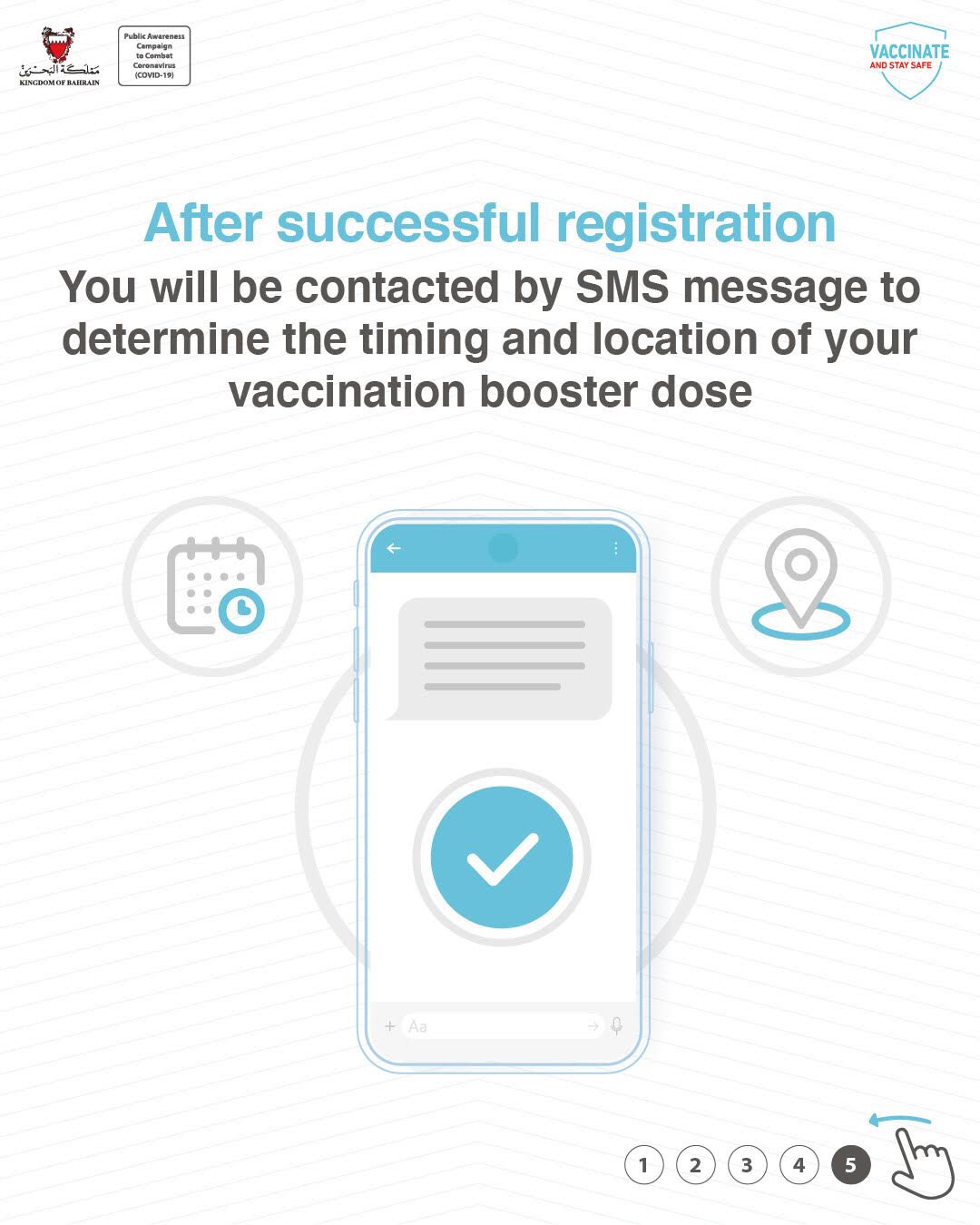Don’t abandon public health measures just because you have received vaccine: Bahrain
TDT | Manama
The Daily Tribune – www.newsofbahrain.com
Despite the steady decline in the number of new Covid-19 cases and casualties in the Kingdom of Bahrain over the past three weeks, health experts still urge people to follow all-important precautionary measures, even after getting the vaccine.
The best way to prevent the spread of the virus is by following all health protocols such as wearing a face mask when heading out in public, observing social distancing, limiting family gatherings, avoiding large crowds, washing hands frequently, and, of course, getting vaccinated.
Bahrain has authorised the emergency use of six vaccines, namely Sinopharm, Pfizer/BioNTech, AstraZeneca’s Covishield, Johnson & Johnson, Sputnik V and Sputnik Light.
Just six months after receiving two shots of China’s Sinopharm vaccine, people in the Kingdom are being offered booster doses of the Pfizer-BioNTech vaccine. The country’s medical taskforce team said the third dose marks a new phase in vaccination and aims at protecting the health of the citizens and foreign residents. The booster is being recommended for people who are over 50, obese or have weakened immune systems.
More than 80% of the Kingdom’s eligible population have already received the first dose of a vaccine and on its way to touching the one-million mark for those who have taken both jabs.
Herd immunity, also known as ‘population immunity’ and ‘community immunity ’, is achieved when a sufficient portion of a population is protected from infectious disease through vaccination to make its spread from person to person in the community unlikely.
Health experts estimate that herd immunity would require around 80% to 90% of the population to have COVID-19 immunity. A community can be protected from an infectious disease such as Covid-19 through herd immunity.
This means enough people in the community develop a resistance to the disease which prevents them from falling ill. This resistance means that the spread of the disease is slowed down throughout the community.
Protective effect
The protective effect of a vaccine may take at least one month, if not slightly longer, according to health experts. Therefore, for the foreseeable future, the Kingdom will really need to continue its mitigation measures, including wearing masks.
Many people have strong feelings about vaccines and may not even take them, and this is the reason why you should wear a mask. Properly wearing a mask can help keep you safe while navigating the pandemic.
While you should continue to wash your hands, cover your coughs and sneezes, avoid touching your face and follow social distancing rules, wearing a mask is an additional step you should also take to stay safe.
As we’ve learned throughout this pandemic, the most common way COVID-19 spread is through person-to-person contact. When an infected person coughs, sneezes, or talks, they produce respiratory droplets that can travel about six feet and can land in the mouths or noses of those nearby.
Covid-19 can also be spread by people who don’t know they have the virus since they aren’t experiencing any symptoms. Because of this, health professionals recommend wearing masks or cloth face coverings to help slow the spread of the virus. In these circumstances, a mask can add an extra layer of protection.
At the lowest risk
While we can’t quantify how effective it is to wear a mask, we do know it offers some protection while not wearing one offers none.
In short, we are all at the lowest risk when everyone wears a mask. And remember, social distancing and hand washing are still very important safety precautions too that everyone should follow in addition to facial protection.
Studies show that even a distance of three feet significantly decreases the spread of the coronavirus from one person to another. At six feet, the risk decreases even further, at nine feet even further than that, and so on, particularly in an indoor setting.
Scientific evidence is clear: the prescribed protective measures help prevent people from spreading COVID-19, and from being infected themselves.
Related Posts



